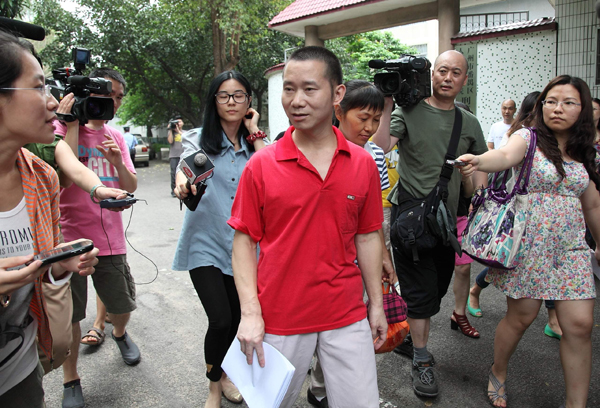Advocates call for euthanasia law[1]|chinadaily.com.cn (original) (raw)
Right-to-die campaigners say legal status must be clarified
Li Yan's body may be weak, but her will to choose the day of her death remains firm.
"I can't do anything without help from my parents - eating, bathing, anything," said the 34-year-old, who has muscular dystrophy. "I need to consider what it will be like when my health deteriorates and no one will take care of me.
"I want the choice of a painless ending when I am ready."
 |
|---|
| Deng Mingjian walks out of the Panyu District People's Court in Guangzhou, Guangdong province, in this May 30 file photo. Deng, a migrant worker from Sichuan province, was sentenced to three years in prison, suspended for four years, after he admitted assisting in his mother's suicide. [Photo/Provided to China Daily] |
Li is an advocate of euthanasia, also called assisted suicide or mercy killing. Li said she believes that a person should be allowed to decide when, where and how their life ends, even it involves enlisting the help of a relative or health professional.
Euthanasia is illegal in China, but since 2007, Li has been campaigning for a change in legislation that would see her country follow the Netherlands, Switzerland, Belgium and some US states in allowing some form of euthanasia.
"When that day comes, I'll be able to reach my destination in peace, without fear," said Li, speaking over the phone from her home in Yinchuan, the Ningxia Hui autonomous region.
The issue of euthanasia divides public opinion, particularly among lawyers and health experts. However, even opponents agree that introducing a lawful process for euthanasia can prevent well-intentioned parents and spouses of people with terminal illnesses from ending up in court.
In October, 38-year-old farmer Jia Zhengwu was tried for intentional homicide after he pushed his wife, who was paralyzed with rheumatism, off a riverbank in Lanzhou, capital of Gansu province.